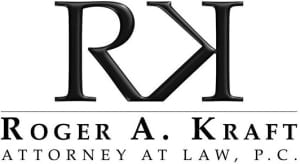Would Chapter 13 Be A Better Fit For Me?
Although Chapter 7 is more popular, many bankruptcy filers would be better served by filing Chapter 13.
Many people considering bankruptcy are attracted to Chapter 7 because of its promises of a quick discharge of many types of debt. Although Chapter 7 is a smart move for many, some may find that Chapter 13 bankruptcy is a better fit.
Benefits Of Chapter 13
In Chapter 13, there is no liquidation sale and no threat of having assets sold to pay debts. Instead, this type of bankruptcy works by consolidating the filer’s debts into a monthly payment plan. Each month, the filer makes a payment towards some or all of his or her debts over a three to five-year period. The amount of debt you repay is based on the filer’s disposable income, which can make for a very low monthly payment.
Since Chapter 7 involves a liquidation sale, Chapter 13 is especially attractive for those with large amounts property that is not exempt from the sale (e.g. multiple homes or cars), since the filer is able to keep this type of property, provided that they continue making their monthly payments under the plan. In Chapter 7, filers would lose this property in the liquidation sale.
Chapter 13 can also be a better fit for those facing foreclosure of their homes or repossession of their cars or other collateral. Chapter 13 immediately stops the foreclosure/repossession and allows the filer to become current on their debt over the repayment period. In chapter 13 a filer can even force the return of a repossessed car if they file soon enough. As long as payments are made each month, creditors may not take any further action to reclaim the property. This is a significant advantage over Chapter 7, which can delay foreclosure/repossession proceedings, but cannot stop them completely, unless the filer immediately becomes current on their arrearages.
Filers with a second mortgage or home equity loan on their homes that owe more than the home is worth may also prefer to file Chapter 13. In Chapter 13, this type of debt is considered unsecured. Thus, it is discharged (or stripped away) during the process, eliminating the filer’s need to repay it.
Chapter 13 is also preferable for those carrying debts that cannot be discharged in Chapter 7, including most income taxes. Chapter 13 allows this type of debt to be repaid in installments over the length of the payment plan. While it is being repaid, the Internal Revenue Service may not garnish the filer’s wages or take other steps to collect the debt.
Speak To An Attorney
Of course, many filers choose Chapter 13 because they cannot qualify for Chapter 7. Filers with a regular income above the state’s median wage may not be able to pass the means test required to qualify for Chapter 7. In addition, if the filer has received a discharge in a prior chapter 7 filed within the past 8 years, they may want to look at Chapter 13. Although many people desire the quick discharge that Chapter 7 offers, most of the debt that would have been discharged in Chapter 7 is also discharged in full at the end of a Chapter 13 without having to be fully repaid under the payment plan. Because of this, filers may often obtain the same result, regardless of the type of bankruptcy filed.
If you are struggling with debt, one type of bankruptcy may be significantly better for you than another. An experienced bankruptcy attorney can consider your income levels, assets and long-term goals and recommend the best way to get relief from your burdensome debt.


